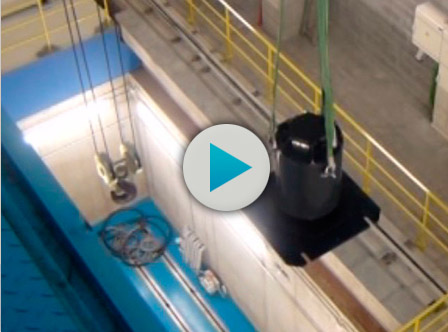PROJECTS
The IK4-TEKNIKER R&D centre is collaborating on the MESSIB project by designing cutting-edge technologies, which will be tested on its test bench located in the bunker of its new facilities.
Edifices, constructions and buildings in Europe consume about 40% of all the energy in the continent. What is more, their activity accounts for a third of all the European Union’s CO2 emissions. Given the importance of these data in the continent's energy balance, the community authorities have opted to invest not only in cheap and efficient energy generation, but also in sustainable consumption and energy storage.
The MESSIB project, supported by a 7.5-million-euro budget and funded through the 7th Framework Programme, is one of the main projects in this field. The IK4-TEKNIKER R&D centre is collaborating by designing cutting-edge technologies for this initiative; it has a consortium led by Acciona and made up of universities, R&D centres and companies from all over Europe, including the German centre Fraunhofer, the Finnish VTT and the Basque company Zigor.
The main aims of the initiative are to develop energy storage technologies, to integrate ventilation, heating and air conditioning technologies into buildings so that their functionality can be optimized and the energy demand of buildings be intelligently managed.
Within the MESSIB project, IK4-TEKNIKER's mission is to design and manufacture the general flywheel solution, a rotating mechanical device used for storing kinetic energy. The flywheel made of composite material is supported by magnetic bearings and works at rotation speeds ranging between 25,000 and 50,000 rpm and with a high vacuum to prevent air friction.
To test the device, IK4-TEKNIKER will be using the test bench located in its new bunker, one of the new assets installed at the centre’s headquarters.
The R&D centre has been commissioned with the mechanical design of the flywheel in its entirety: magnetic levitation development, energy management and validation tests. For this purpose it has designed and manufactured the levitation system in its entirety (magnetic bearings, sensors, power electronics and real-time control) and has also undertaken to design and monitor the manufacture of the parts comprising the axle and casing of the system, its assembly and verification.
Buffer against fluctuations between supply and demand
The basic idea guiding this initiative is the creation of a buffer that will balance the fluctuations in energy supply and demand, since the electricity demand in buildings tends to fluctuate in various cycles (between daytime and night time, between weekdays and weekends or between summer and winter). The MESSIB project seeks to create systems for storing thermal and electrical energy to cover these cycles in the short, medium and long term, so that during possible power cuts, systems of this type can be activated instantly and guarantee that the supply will continue/function.
The flywheel designed by IK4-TEKNIKER researchers has been thought up to store high-power energy during brief periods, so it would be a method admirably suited to some of the requirements of smart grids or for one-off demand situations like power cuts.




